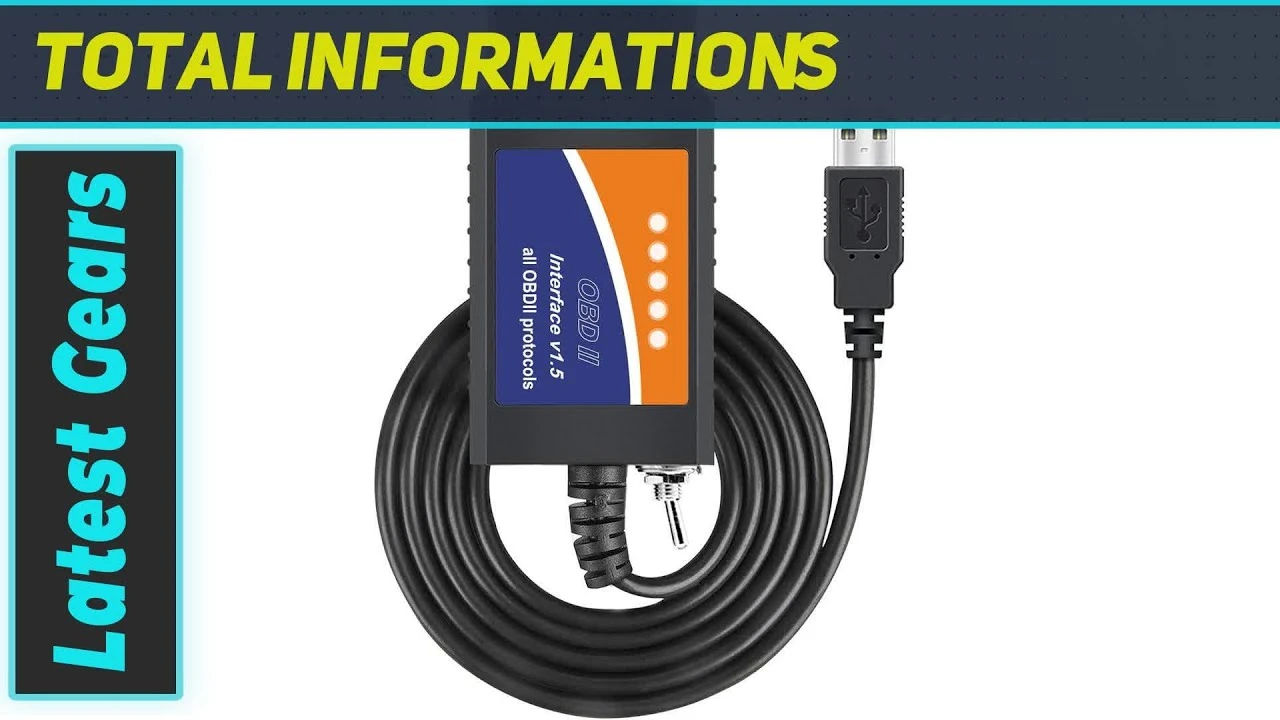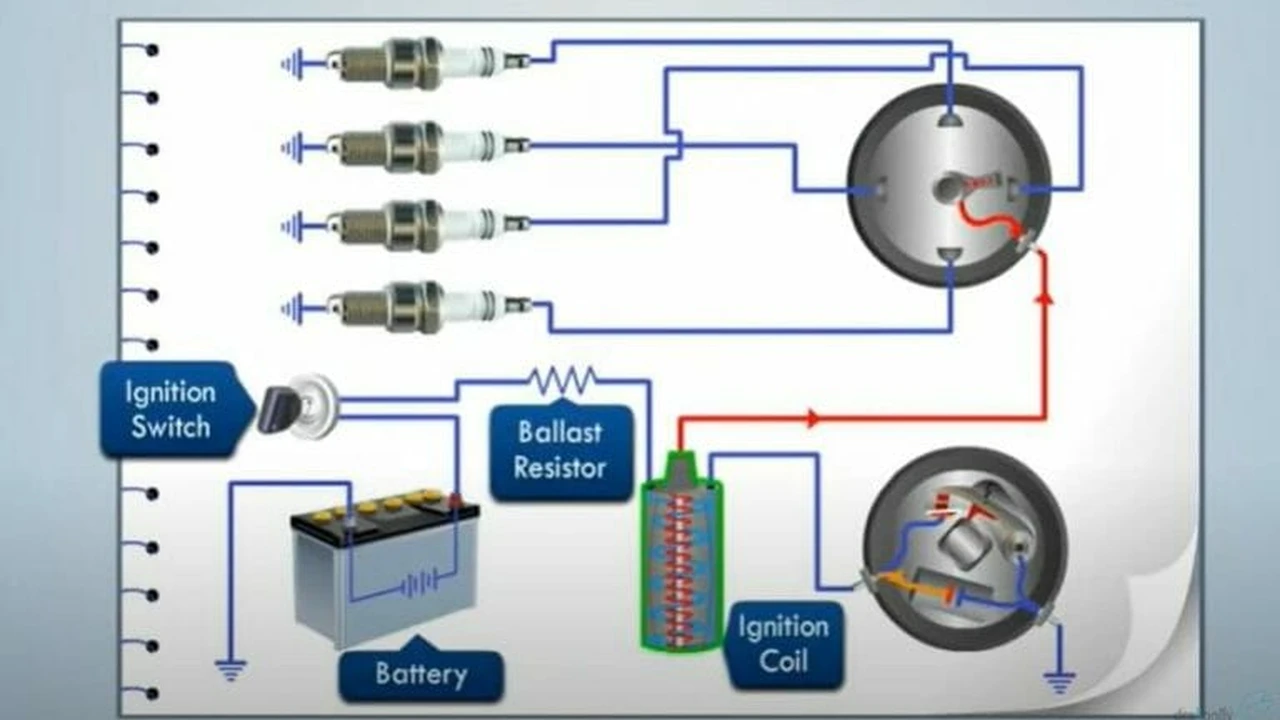OBD2 Tuning: Unlocking Hidden Performance Features

OBD2 tuning allows you to access and modify hidden performance features in your vehicle's ECU. Discover the capabilities of OBD2 tuning and how it can enhance your driving experience. Unleash the untapped potential of your car.
What is OBD2 Tuning and How Does it Work Performance Tuning OBD2 Port
Okay, let's dive into OBD2 tuning. What exactly *is* it? OBD2, or On-Board Diagnostics II, is a standardized system that pretty much every car sold in the US since 1996 uses. It's basically a computer system that monitors your engine's performance and emissions. Think of it as your car's internal health tracker.
Now, the cool part is that you can access and modify this system using specialized software and hardware. This is OBD2 tuning! It allows you to tweak various parameters within your car's Engine Control Unit (ECU) to optimize performance, fuel efficiency, or even customize certain features. We're talking things like adjusting air-fuel ratios, ignition timing, boost levels (if you have a turbo), and even throttle response.
The process usually involves connecting a tuning device to your car's OBD2 port (usually located under the dashboard). This device allows you to read the existing ECU data, modify it using tuning software, and then flash the modified data back onto the ECU. It's like giving your car's brain a software update!
Benefits of OBD2 Tuning Why Tune Your ECU Performance Gains Fuel Economy
So, why would you even bother with OBD2 tuning? Well, there are several compelling reasons:
* **Performance Gains:** This is the big one! OBD2 tuning can unlock hidden horsepower and torque by optimizing engine parameters for your specific modifications and driving style. Imagine your car feeling more responsive, accelerating faster, and having more power overall. * **Improved Fuel Economy:** Believe it or not, tuning can actually *improve* fuel economy in some cases. By optimizing the air-fuel ratio and other parameters, you can make your engine more efficient, resulting in better gas mileage. * **Customization:** OBD2 tuning allows you to customize your car's behavior to your liking. Want a more aggressive throttle response? You can do that. Want to limit top speed? You can do that too. The possibilities are pretty much endless. * **Fixing Issues:** Sometimes, aftermarket parts or modifications can throw off your car's ECU, leading to drivability issues. OBD2 tuning can help you correct these issues and ensure that your car runs smoothly. * **Disabling Annoying Features:** Some people use OBD2 tuning to disable features they find annoying, like the auto start-stop system.Potential Risks and Considerations Safety First OBD2 Tuning Dangers
Now, before you get too excited and start flashing your ECU, it's important to understand the potential risks and considerations:
* **Warranty Concerns:** Modifying your car's ECU can void your factory warranty. Be sure to check with your dealer or warranty provider before tuning. * **Engine Damage:** Improper tuning can lead to serious engine damage, such as detonation, overheating, or even complete engine failure. It's crucial to have a solid understanding of engine tuning principles or to work with a qualified professional. * **Emissions Regulations:** Modifying your car's ECU can affect its emissions compliance. Be aware of local emissions regulations before tuning your vehicle. * **Software Glitches:** Sometimes, tuning software can have glitches or bugs that can cause problems with your car's ECU. Always use reputable software from a trusted source.OBD2 Tuning Software and Hardware Recommendations Best Tuning Tools Cost Comparison
Alright, let's talk about the tools you'll need for OBD2 tuning. You'll typically need two things: tuning software and a tuning device (also known as an OBD2 adapter or interface).
Here are a few popular options:
* **COBB Accessport:** This is a very popular choice, especially for Subaru, Mazda, and Ford vehicles. It's a handheld device that allows you to flash pre-loaded tunes or create custom tunes using COBB's software. It also has a built-in data logging feature. Expect to pay around $600-$1000 depending on the vehicle. Great for beginners and those who want a user-friendly experience. * **HP Tuners MPVI2/MPVI3:** HP Tuners is a more advanced tuning platform that supports a wide range of vehicles, including GM, Ford, Chrysler, and more. It requires a bit more technical knowledge to use, but it offers a lot of flexibility and customization options. The interface itself is around $400, but you'll need to purchase "credits" to tune specific vehicles, which can add another $100-$200 per vehicle. Favored by professional tuners. * **EcuFlash (Open Source):** If you're on a tight budget and have some technical skills, you can use EcuFlash, which is an open-source tuning software. You'll still need an OBD2 adapter (like an OpenPort 2.0), but the software itself is free. This is best for experienced tuners. * **SCT X4/Bdx:** SCT is another popular option, particularly for Ford vehicles. It offers pre-loaded tunes and custom tuning options. The SCT X4 is a handheld device, while the Bdx can be used with a smartphone app. Price ranges from $400-$600.When choosing software and hardware, consider the following:
* **Vehicle Compatibility:** Make sure the software and hardware are compatible with your vehicle's make, model, and year. * **Features:** Consider the features you need, such as data logging, custom tuning, and pre-loaded tunes. * **Ease of Use:** Choose software that is easy to use and understand, especially if you're a beginner. * **Price:** Tuning software and hardware can range in price from a few hundred dollars to over a thousand dollars. Set a budget and choose the best option within your price range.Finding a Reputable Tuner Professional Tuning Services Dyno Tuning Experts
If you're not comfortable tuning your car yourself, it's always best to work with a reputable tuner. A good tuner will have the knowledge, experience, and equipment to safely and effectively tune your vehicle.
Here's how to find a good tuner:
* **Ask for Recommendations:** Ask friends, family, or online forums for recommendations. * **Check Online Reviews:** Read online reviews to see what other people have to say about the tuner's services. * **Look for Certifications:** Some tuners have certifications from organizations like ASE (Automotive Service Excellence). * **Ask About Their Experience:** Ask the tuner about their experience tuning your specific vehicle make and model. * **Get a Quote:** Get a quote from several tuners before making a decision.OBD2 Tuning for Specific Scenarios Street Tuning Track Tuning Fuel Efficiency Tuning
OBD2 tuning isn't a one-size-fits-all solution. The best approach depends on your specific goals and driving style.
* **Street Tuning:** For street driving, you'll want a tune that balances performance, fuel economy, and drivability. You'll also want to consider factors like emissions compliance and daily driving comfort. * **Track Tuning:** For track days, you'll want a tune that maximizes performance, even at the expense of fuel economy and comfort. You'll also need to consider factors like engine cooling and durability. * **Fuel Efficiency Tuning:** If your primary goal is to improve fuel economy, you'll want a tune that optimizes the air-fuel ratio and other parameters for maximum efficiency.Real-World Examples and Case Studies Before and After Dyno Results
To give you a better idea of what OBD2 tuning can achieve, let's look at a few real-world examples:
* **Example 1: Subaru WRX with a COBB Accessport:** A stock Subaru WRX typically makes around 220 horsepower. With a COBB Accessport and a Stage 1 tune (which requires no additional modifications), you can often see gains of 20-30 horsepower. * **Example 2: Ford Mustang with HP Tuners:** A Ford Mustang GT with some bolt-on modifications (like a cold air intake and exhaust) can see significant gains with a custom tune from HP Tuners. Gains of 50-100 horsepower are not uncommon. * **Example 3: Honda Civic with EcuFlash:** A Honda Civic Si with a turbocharger can be tuned using EcuFlash to achieve impressive power gains. However, this requires a lot of technical knowledge and experience.These are just a few examples, and the actual results will vary depending on your vehicle, modifications, and tuning strategy.
Final Thoughts Is OBD2 Tuning Right for You?
OBD2 tuning can be a great way to unlock hidden performance potential in your car, improve fuel economy, or customize certain features. However, it's important to understand the potential risks and considerations before diving in. If you're not comfortable tuning your car yourself, it's always best to work with a reputable tuner.
Do your research, choose the right software and hardware, and always prioritize safety. With the right approach, OBD2 tuning can transform your driving experience.
:max_bytes(150000):strip_icc()/277019-baked-pork-chops-with-cream-of-mushroom-soup-DDMFS-beauty-4x3-BG-7505-5762b731cf30447d9cbbbbbf387beafa.jpg)






